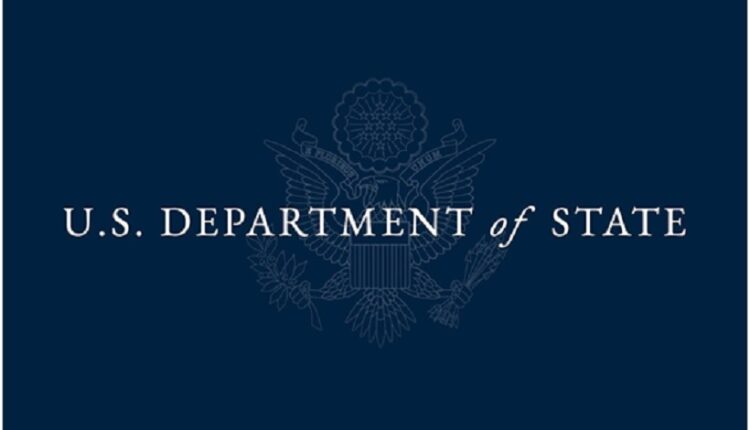Country Reports on Terrorism 2019: Iran
U.S. Department of State | June 24, 2020
Iran designated as a State Sponsor of Terrorism in 1984, Iran continued its terrorist-related activity in 2019, including support for Hizballah, Palestinian terrorist groups in Gaza, and various terrorist groups in Syria, Iraq, and throughout the Middle East. Iran used the Islamic Revolutionary Guard Corps-Qods Force (IRGC-QF) to provide support to terrorist organizations, provide cover for associated covert operations, and create instability in the region. Iran has acknowledged the involvement of the IRGC-QF in the Iraq and Syria conflicts, and the IRGC-QF is Iran’s primary mechanism for cultivating and supporting terrorists abroad. In April 2019, the Secretary of State designated the IRGC, including the Qods Force, as a Foreign Terrorist Organization (FTO). Iran also used regional proxy forces to provide deniability, in an attempt to shield it from accountability for its aggressive policies.
In 2019, Iran supported various Iraqi Shia terrorist groups, including Kata’ib Hizballah (KH), Harakat al-Nujaba, and Asa’ib Ahl al-Haq. During the same period, KH was responsible for a series of rocket attacks against American interests in Iraq, which culminated in the death of an American citizen following a 30 plus rocket barrage in December 2019. On December 31, Iran backed Shia militia groups, including KH, participated in an attack on U.S. Embassy Baghdad, which resulted in significant damage to embassy property. There were no embassy casualties and security personnel used less-than-lethal countermeasures to repulse intruders. It also bolstered the Assad regime in Syria and Shia terrorist groups operating there, including Hizballah. Iran views the Assad regime in Syria as a crucial ally and Syria and Iraq as vital routes through which to supply weapons to Hizballah, Iran’s primary terrorist proxy group. Through financial or residency enticements, Iran has facilitated and coerced primarily Shia fighters from Afghanistan and Pakistan to participate in the Assad regime’s brutal crackdown in Syria. Iran-supported Shia militias in Iraq have also committed serious human rights abuses against primarily Sunni civilians. Iranian forces have directly backed militia operations in Syria with armored vehicles, artillery, and drones.
Since the end of the 2006 Israeli-Hizballah conflict, Iran has supplied Hizballah with thousands of rockets, missiles, and small arms in direct violation of UNSCR 1701. Israeli security officials and politicians expressed concerns that Iran was supplying Hizballah with advanced weapons systems and technologies, as well as assisting the group in creating infrastructure that would permit it to indigenously produce rockets and missiles to threaten Israel from Lebanon and Syria. Iran has provided hundreds of millions of dollars in support of Hizballah and trained thousands of its fighters at camps in Iran. Hizballah fighters have been used extensively in Syria to support the Assad regime. In Bahrain, Iran has continued to provide weapons, support, and training to local Shia militant groups, including the al-Ashtar Brigades. In Yemen, Iran has provided weapons, support, and training to the Houthi militants, who have engaged in terrorist attacks against regional targets.
In 2019, Iran provided support to Hamas and other designated Palestinian terrorist groups, including Palestine Islamic Jihad and the Popular Front for the Liberation of Palestine-General Command. These Palestinian terrorist groups were behind numerous deadly attacks originating in Gaza and the West Bank, including attacks against Israeli civilians in the Sinai Peninsula.
The Iranian government maintains a robust offensive cyber program and has sponsored cyber attacks against foreign government and private sector entities.
Iran remained unwilling to bring to justice senior al-Qa’ida (AQ) members residing in the country and has refused to publicly identify members in its custody. Iran has allowed AQ facilitators to operate a core facilitation pipeline through Iran since at least 2009, enabling AQ to move funds and fighters to South Asia and Syria.
As in past years, the Iranian government continued supporting terrorist plots to attack Iranian dissidents in several countries in continental Europe. In recent years, the Netherlands, Belgium, and Albania have all either arrested or expelled Iranian government officials implicated in various terrorist plots in their respective territories. Denmark similarly recalled its ambassador from Tehran after learning of an Iran-backed plot to assassinate an Iranian dissident in its country.
https://www.state.gov/reports/country-reports-on-terrorism-2019/iran/


Comments are closed.